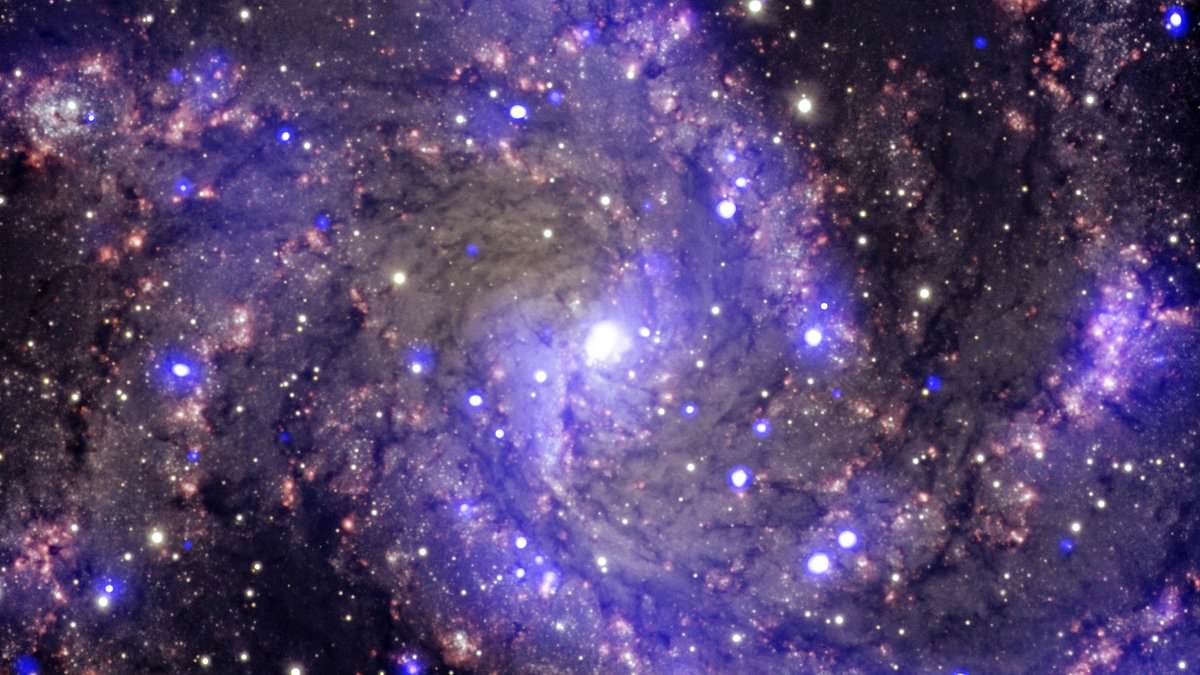QUESTION: Do all galaxies form in the same way?
No. The formation and evolution of galaxies are influenced by various processes, leading to different types and classes.
In the early universe, regions with over-densities of dark matter and gas collapsed under gravity to form the first galaxies.
Spiral galaxies, elliptical galaxies and lenticular galaxies are some of the types of galaxies in the universe. These are created through accretion — the accumulation of particles into a massive object — and active star formation.
A famous example of a spiral galaxy is the Milky Way, which contains our solar system. Spiral galaxies are the most distinctive type and often have a small bulge at their centre.
On the other hand, elliptical galaxies are spherical or cucumber-like in shape and contain older, dimmer stars, which give off more red light than younger ones. As most of the gas has been used up or dispelled, there is no star formation occurring within an elliptical galaxy.
Lenticular galaxies lie somewhere between spirals and ellipticals in shape. Like spiral galaxies, they have central bulges, but they do not have the ‘arms’ that are a distinctive feature of spiral galaxies. Lenticular galaxies have older stellar populations than spiral galaxies and little ongoing star formation.
Q: How many foods and drinks in the UK benefit from protected status?
Craig Graham, Faringdon, Oxon
Q: Where is the lake featured in Depeche Mode’s Enjoy The Silence video?
Janet Halpin, Caerphilly, Glamorgan
Q: Why is an unplayable ball in cricket called a ‘jaffa’?
Sean Walker, Beckenham, Kent
Around ten per cent of galaxies are known as active galaxies. These have an energetic core, powered by a supermassive black hole at their centre. Ordinary black holes, which mostly arise from the death of a single star, contain about ten times the sun’s mass. On the other hand, the mass of supermassive black holes can be as much as several billion times the mass of our sun.
Larger galaxies form through the merging and accretion of smaller galaxies, a process known as hierarchical merging.
A. K. Jones, Reading, Berks
QUESTION: Has anyone ever written a song about an Audrey?
American alto saxophonist Paul Desmond, who played with Dave Brubeck, had a crush on actress Audrey Hepburn.
In 1954, Desmond was playing in New York at the same time as Audrey was starring in Ondine at the 46th Street Theatre. He would take time out to go to see her leave the theatre, but never spoke to her and never met her.
The same year, he wrote a tune he called Audrey. It’s the first track on The Dave Brubeck Quartet’s 1955 album Brubeck Time.
Desmond died of lung cancer in 1977, never knowing whether or not Hepburn had even heard the song.
In fact, according to Hepburn’s husband Andrea Dotti, she listened to the tune every night before going to bed.
Colin Head, March, Cambs
Shaun Cassidy, the younger half-brother of David Cassidy, featured a song called Audrey on his 1977 album, Born Late (‘That it’s Audrey/Lighting my life with her smile/Looking through the eyes of a child’).
Walter Becker was one of the two founders of Steely Dan. His 2008 solo album Circus Monkey featured the song Paging Audrey (‘Paging Audrey/Any random star/Lost and lonely/Somewhere very far/Paging Audrey/Come in from the cold’).
Bob Bell, Croydon, Surrey.
QUESTION: Why is it that certain foodstuffs — coriander, for example — taste so different to different people?
Human beings carry a gene that makes them sensitive to bitter flavours. This gene, TAS2R38, codes for taste receptors on our tongue that taste for a bitter chemical called PTC (phenylthiocarbamide).
While PTC is not normally found in food, it is similar to chemicals found in cruciferous vegetables including cabbage, broccoli, kale and Brussels sprouts.
The PTC gene comes in two common forms – bitter-tasting or non-tasting. Since all people have two copies of every gene, combinations of the bitter taste gene variants determine whether someone finds PTC intensely bitter, somewhat bitter or without taste at all. ‘Supertasters’, people with two copies of the bitter-tasting form, cannot stand sprouts.
In the case of the herb coriander, a soapy taste can arise because the chemicals that create the flavour include fragments of fat molecules called aldehydes which are similar to those produced during the soap-making process.
As many as one in five people are super-sensitive to aldehydes and research has found two genetic variants which may be responsible.Some people dislike this intensely: the 17th-century herbalist John Gerard called coriander a ‘very stinking herbe’ with leaves of ‘venemous quality’.
Dr Ian Smith, Cambridge
